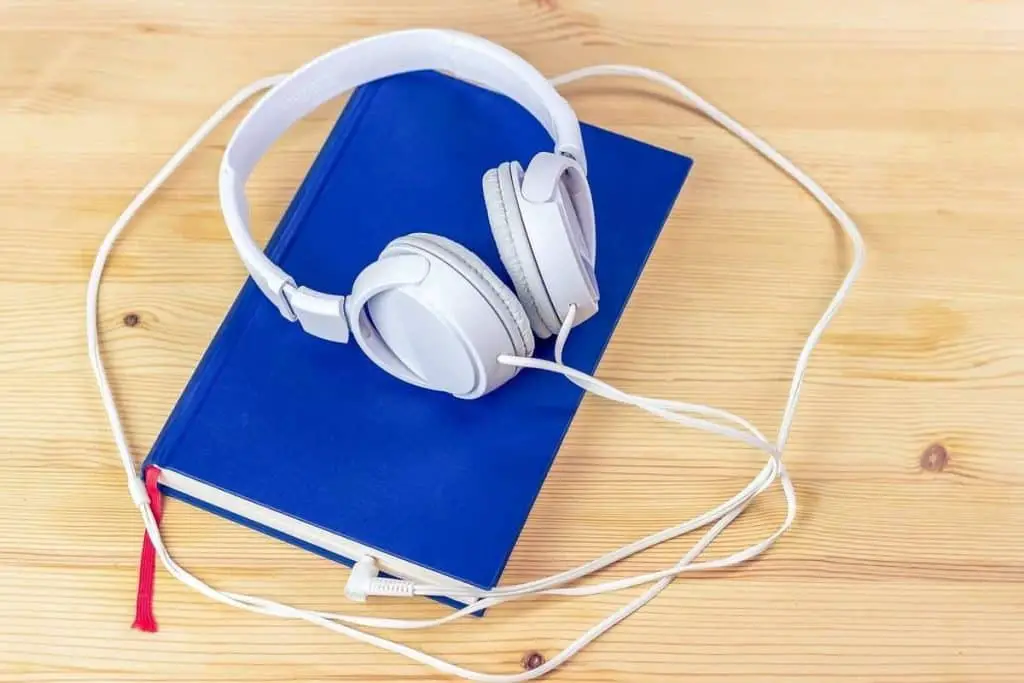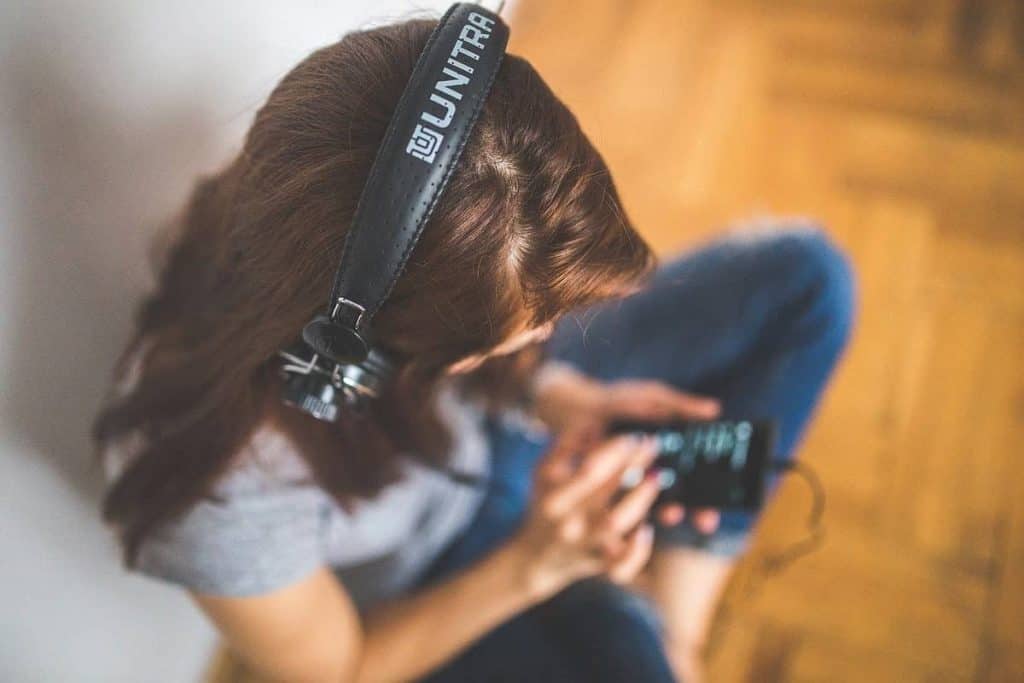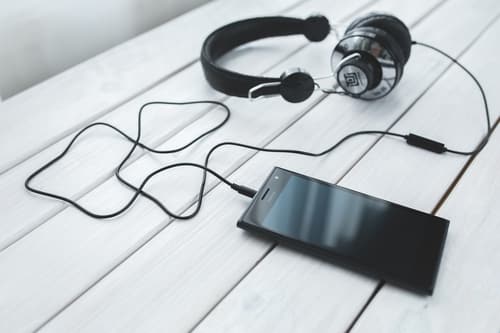
Downloading a new audiobook can be exciting. There’s a whole other world ready to be cracked open. Concentrating when listening is easier said than done for some of us, and having to rewind certain sections can be an inconvenience.
How can you concentrate when listening to Audiobooks? If your mind is already preoccupied with other thoughts before you start reading, it may be best to clear your head first. Similarly, identifying when you’re starting to lose focus can help you retain it. Hitting pause on your book and doing what you need to do before dedicating your attention to the book can help.
Small increments aren’t the only way to go about increasing your concentration skills, so don’t use them as the only tools in your belt. In this article, I will go over some tips to help you concentrate on your audiobook, as well as why you may not be able to interpret this form of media as well as you’d like.

Tips For Concentrating
Getting the most out of your book isn’t possible if you can’t concentrate, but fighting off the inability is manageable. I’ll include some crucial tips for being able to concentrate on your audiobook, as well as actually retain the information you’re given. Be sure to pair up as many of these tips as you can to ensure you’re getting the most out of your audiobook.
1. Listen In Increments
If you’re sitting down expecting to listen to your audiobook for a full-hour and not face any interruptions, you may be thinking unrealistically. Even though you can mute phone notifications, that’s not possible for every aspect of interruptions. Take one of the examples I used earlier in the article, with preoccupied thoughts taking away your focus.
This is why listening in small increments is beneficial due to retaining content being more efficient after taking some time to reflect on what you’ve heard. Your mind will inevitably start to drift off, and you’ll begin to only hear the words instead of understanding the concepts behind them.
These increments need to range from 20-30 minutes, with a 5 to 10-minute break for reflection on the content. This will allow you to take a small break to clear your head, which will only help with keeping focused on your audiobook

2. Jot Down Notes
This extra effort helps with retention and keeps your mind sharp on the topic for useful notes to jot down. Be it paper and pen or via smartphone, find a reliable source for these notes that you can place down quickly. If you have the Audible app, then you’ll find that you’re able to clip certain parts of the book to keep for later.
Making a point to take notes can help with concentration seeing how your mind is on the hunt for something important to put down, and your mind is going to continuously listen in to the content to find it. What you jot down is up to your discretion, be it a quote for a blog or to revisit that oneliner you love.
Try and set a number of notes that you want to have down before the section is over, and try and meet it before the next one starts. If you plan on listening before you go to bed, as I list below, then this tip goes double for retention and concentration.
3. Reread A Favorite Book
This takes away the frustration of having to rewind certain sections because you’re attention trailed off. You know the story and how it plays out, so missing a few sections doesn’t bring the confusion of not knowing what’s going on or a vital plot-twist. The pressure’s off, and it leaves you to practice your concentration skills with little risk of losing your place.
The book-length doesn’t really matter here, only how well you are able to actually concentrate on the content you’re listening to. The chance of you getting the full information (and enjoyment) of a book only comes with multiple re-reads. If you’re new to the audio-format and don’t know if you’ll fair well with it right off the bat, then listen to your favorite book for the first time.
Your narrator may even play an important part and acts as the deciding factor for many on whether they stay immersed in the book.
4. Adjust The Narrative Speed
Take advantage of this tool as much as you can, especially when breaching off into newer material. If you’re a fast reader or don’t typically face any problems with concentration then you cut the book-length down dramatically. For those that need the information at a slower pace, or have trouble concentrating, adjusting your speed to a lower volume can help you concentrate on every word.
You can pair this up with rereading one of your favorite books to really help you concentrate. As you’re able to concentrate on the content, you’ll be able to process it faster.
5. Set The Proper Setting
Take the time to turn off any distractions, whether they are TVs or phone alerts. In order to concentrate, you’ll need to be in an environment that nurtures it. High traffic rooms are a no-go if you’re really trying to pay attention. Listen to your audiobook in a room that doesn’t see very much activity to help cut down on distractions and help keep your focus on your book.
6. Buy A Decent Set Of Headphones
Chances are you could go with a new set of headphones, nothing too fancy, just something that makes you want to listen to that audiobook. There are many brands out there that sell noise-cancellation headphones for a cheap price, but make sure that whenever you put them on, you can really afford to. You won’t be able to hear anything in your environment, so if you have small children in the room then its best to opt-out on these.
Make sure that whatever set of headphones you buy doesn’t serve as another distraction in itself. Go along the Bluetooth route if you can to make sure you aren’t having problems with the chords if you’re active.
7. Listen During Bedtime
A 10 to 20-minute increment before bedtime can be extremely helpful. There’s a high chance you’ll be relaxed during this increment, and many electronics may already be shut off to help you enter dreamland. Capitalize off this moment by taking a quick listen to your audiobook, and jot down the important notes to help you concentrate.
Why You May Have Problems Concentrating
In 2013, a Frontiers in Psychology study found that losing focus on an audiobook was significantly easier than with a physical text. You’re taking in your information audibly instead of visually, and being able to touch the pages (i.e, control the flow) is vital for many people in terms of concentration and information retention.
This media isn’t the best way to go for many people, and then you also have to include a set of personal preferences that will also vary by person. While someone may be able to process the information given over an audio format, they still may have problems properly breaking into it for reasons like the narrative voice or writing style.
One of the points I included in the article references this. When you’re new to the audiobook format, choose a book you know best. This is an entirely different form of media, and you may find that just because you can focus on a physical text doesn’t mean the same with audio.
Personally, I am a visual learner and reading a physical book is my preferred method. Still, I have enjoyed many-an-audiobook over the years, and these tips have helped me. I hope they help you, too!



